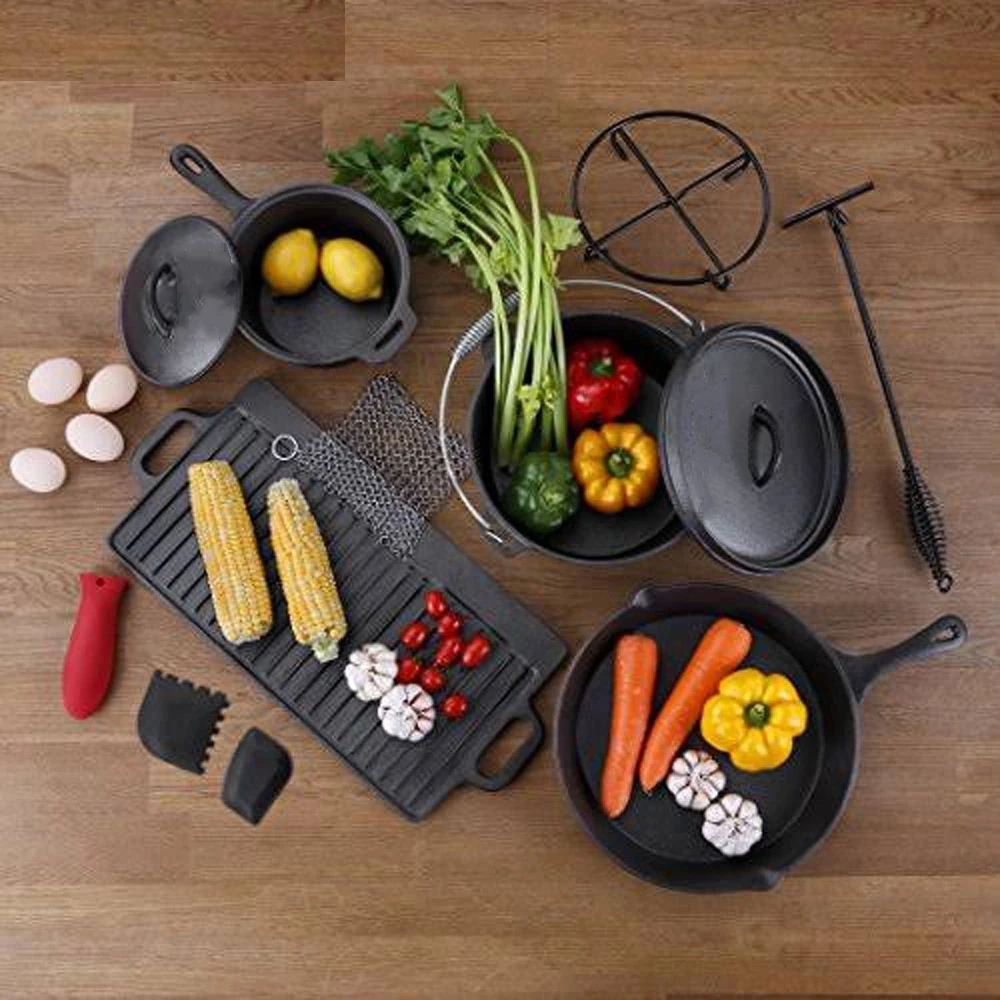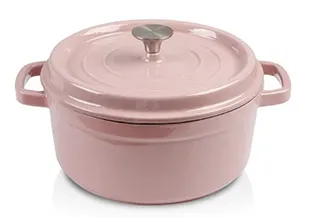
2 月 . 14, 2025 23:10
Back to list
dutch oven what is it
The Dutch oven is a versatile piece of cookware, treasured by chefs and culinary enthusiasts for its exceptional ability to deliver consistent, flavorful results. With roots tracing back hundreds of years, the Dutch oven is more than just a cooking pot; it embodies a tradition of quality, durability, and versatility in the kitchen.
Dutch ovens also stand out due to their authoritativeness across cultural culinary practices. Historically, they have been an integral tool for domestic and professional kitchens worldwide. In Europe, they were used as early as the 18th century for hearth cooking and have continued to evolve with technological advancements in cookware. The credibility of Dutch ovens is evident in their enduring presence in cookbooks and their essential status in renowned kitchens globally. Trustworthiness is embodied in the Dutch oven’s reputation for durability and performance. A high-quality Dutch oven is a long-term investment; many are passed down through generations. Their robust design and dependable heat distribution ensure that cooking outcomes are consistently excellent. Culinary professionals and home cooks alike trust them for their ability to withstand high temperatures and their inherent versatility. Whether on a stovetop, in an oven, or over an open fire, Dutch ovens deliver reliable results every time. For potential buyers, selecting the right Dutch oven involves considering size, material, and brand reputation. Sizes range from small 2-quart pots ideal for side dishes to large 9-quart versions suited for feeding a crowd. Material choice largely depends on intended use; while traditional cast iron requires seasoning, enameled variants offer low-maintenance alternatives. Prominent brands like Le Creuset and Lodge offer extensive lines of Dutch ovens recognized for their craftsmanship and durability. In conclusion, a Dutch oven is not just a kitchen tool but a culinary investment that merges tradition with modern adaptability. Its experience-enhancing qualities, backed by sound craftsmanship and historical authority, make it a must-have for anyone serious about cooking. The trust it commands among chefs—from amateurs to seasoned professionals—is unapologetically earned through generations of flawless performance. Embrace the legacy and versatility of the Dutch oven, and elevate your cooking experience to new heights.


Dutch ovens also stand out due to their authoritativeness across cultural culinary practices. Historically, they have been an integral tool for domestic and professional kitchens worldwide. In Europe, they were used as early as the 18th century for hearth cooking and have continued to evolve with technological advancements in cookware. The credibility of Dutch ovens is evident in their enduring presence in cookbooks and their essential status in renowned kitchens globally. Trustworthiness is embodied in the Dutch oven’s reputation for durability and performance. A high-quality Dutch oven is a long-term investment; many are passed down through generations. Their robust design and dependable heat distribution ensure that cooking outcomes are consistently excellent. Culinary professionals and home cooks alike trust them for their ability to withstand high temperatures and their inherent versatility. Whether on a stovetop, in an oven, or over an open fire, Dutch ovens deliver reliable results every time. For potential buyers, selecting the right Dutch oven involves considering size, material, and brand reputation. Sizes range from small 2-quart pots ideal for side dishes to large 9-quart versions suited for feeding a crowd. Material choice largely depends on intended use; while traditional cast iron requires seasoning, enameled variants offer low-maintenance alternatives. Prominent brands like Le Creuset and Lodge offer extensive lines of Dutch ovens recognized for their craftsmanship and durability. In conclusion, a Dutch oven is not just a kitchen tool but a culinary investment that merges tradition with modern adaptability. Its experience-enhancing qualities, backed by sound craftsmanship and historical authority, make it a must-have for anyone serious about cooking. The trust it commands among chefs—from amateurs to seasoned professionals—is unapologetically earned through generations of flawless performance. Embrace the legacy and versatility of the Dutch oven, and elevate your cooking experience to new heights.
Previous:
Latest news
-
Extra Large Round Cast Iron Griddle - Heavy Duty Griddle Plate for Even Heating & Versatile CookingNewsJun.10,2025
-
Top Brands of Cast Iron Cookware Durable & Versatile Cast Iron Skillet BrandsNewsJun.10,2025
-
Enamel Coated Cast Iron Pot Durable, Non-Stick & Even Heat CookingNewsMay.30,2025
-
2 Quart Dutch Oven Durable Cast Iron, Even Heating & VersatileNewsMay.30,2025
-
Best Chinese Wok Price Authentic Iron Pans, Fast Shipping & DealsNewsMay.29,2025
-
Non-Stick Cast Iron Skillet with Lid Durable & Easy-Clean PanNewsMay.29,2025


